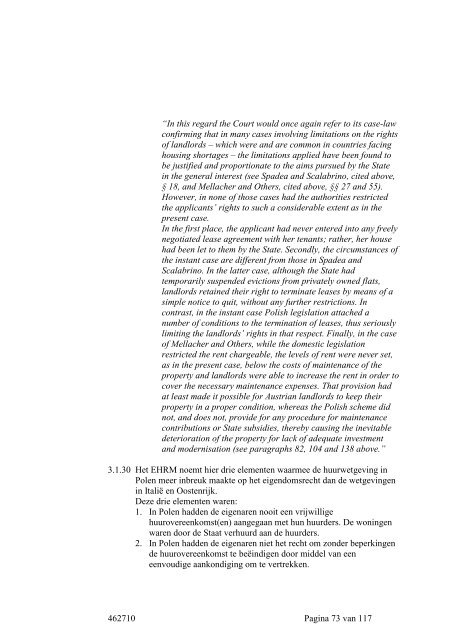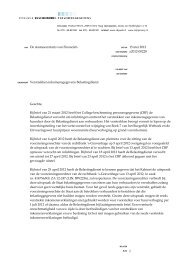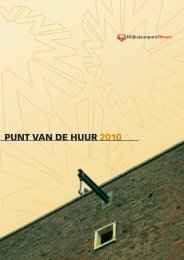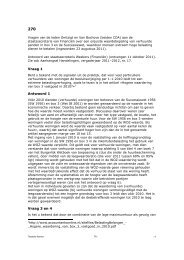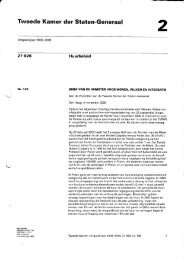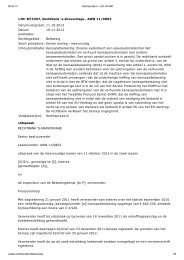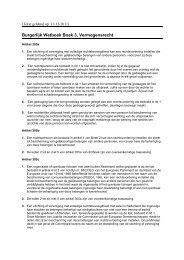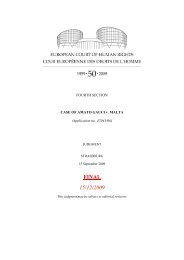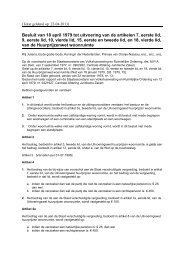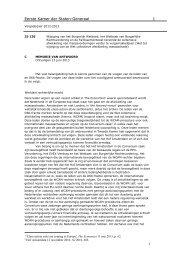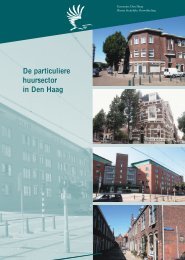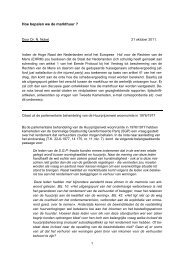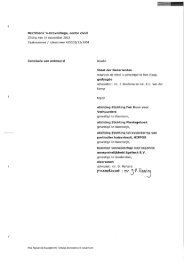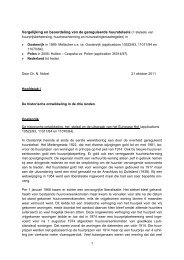Dagvaarding - Fair Huur voor verhuurders
Dagvaarding - Fair Huur voor verhuurders
Dagvaarding - Fair Huur voor verhuurders
You also want an ePaper? Increase the reach of your titles
YUMPU automatically turns print PDFs into web optimized ePapers that Google loves.
“In this regard the Court would once again refer to its case-law<br />
confirming that in many cases involving limitations on the rights<br />
of landlords – which were and are common in countries facing<br />
housing shortages – the limitations applied have been found to<br />
be justified and proportionate to the aims pursued by the State<br />
in the general interest (see Spadea and Scalabrino, cited above,<br />
§ 18, and Mellacher and Others, cited above, §§ 27 and 55).<br />
However, in none of those cases had the authorities restricted<br />
the applicants’ rights to such a considerable extent as in the<br />
present case.<br />
In the first place, the applicant had never entered into any freely<br />
negotiated lease agreement with her tenants; rather, her house<br />
had been let to them by the State. Secondly, the circumstances of<br />
the instant case are different from those in Spadea and<br />
Scalabrino. In the latter case, although the State had<br />
temporarily suspended evictions from privately owned flats,<br />
landlords retained their right to terminate leases by means of a<br />
simple notice to quit, without any further restrictions. In<br />
contrast, in the instant case Polish legislation attached a<br />
number of conditions to the termination of leases, thus seriously<br />
limiting the landlords’ rights in that respect. Finally, in the case<br />
of Mellacher and Others, while the domestic legislation<br />
restricted the rent chargeable, the levels of rent were never set,<br />
as in the present case, below the costs of maintenance of the<br />
property and landlords were able to increase the rent in order to<br />
cover the necessary maintenance expenses. That provision had<br />
at least made it possible for Austrian landlords to keep their<br />
property in a proper condition, whereas the Polish scheme did<br />
not, and does not, provide for any procedure for maintenance<br />
contributions or State subsidies, thereby causing the inevitable<br />
deterioration of the property for lack of adequate investment<br />
and modernisation (see paragraphs 82, 104 and 138 above.”<br />
3.1.30 Het EHRM noemt hier drie elementen waarmee de huurwetgeving in<br />
Polen meer inbreuk maakte op het eigendomsrecht dan de wetgevingen<br />
in Italië en Oostenrijk.<br />
Deze drie elementen waren:<br />
1. In Polen hadden de eigenaren nooit een vrijwillige<br />
huurovereenkomst(en) aangegaan met hun huurders. De woningen<br />
waren door de Staat verhuurd aan de huurders.<br />
2. In Polen hadden de eigenaren niet het recht om zonder beperkingen<br />
de huurovereenkomst te beëindigen door middel van een<br />
eenvoudige aankondiging om te vertrekken.<br />
462710 Pagina 73 van 117


